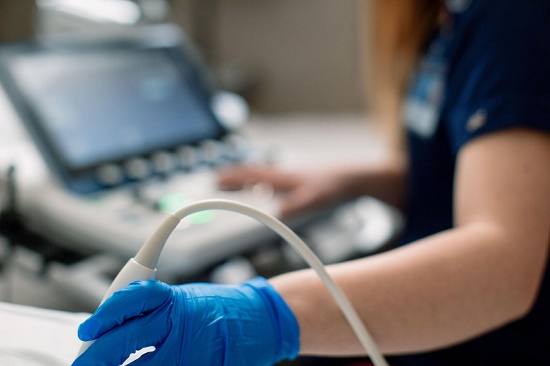-
Cardiovascular
New 4D imaging may detect poor pumping in deadly heart disease

In a new study, Mayo Clinic researchers found that a novel 4D echo imaging method that measures cardiac strain may detect subtle changes in the heart's dysfunction during acute myocarditis, a deadly heart disease. In addition, they were able to describe heart functional differences by sex using the technology in a preclinical model. Currently, there are no disease-specific therapies to treat myocarditis.
The research is published in iScience.
An echocardiogram is one of the most common methods of measuring heart function and allows physicians to screen for heart issues, as well as monitor patients with existing heart conditions, such as myocarditis, or inflammation of the heart muscle often caused by viral infections. The test shows how blood moves through the heart's chambers and valves. Cardiac strain is a measurement that shows how well the heart muscle can move. When the muscle is inflamed, it can stiffen. It is particularly important to know the function of the left ventricle, which is the most muscular and hard-working chamber of the heart.
Myocarditis occurs most frequently in men under the age of 50 (especially ages 16-30). Women are at the greatest risk of developing the condition after the age of 50, or when they are postmenopausal, according to the researchers.
In this study, the researchers used a model of viral myocarditis to compare sex differences in male and female mice with myocarditis to a control group of mice after day 10 of infection. The researchers discovered that sex differences existed in cardiac strain during myocarditis, which they say was not known previously, and that worse cardiac strain in male mice with myocarditis correlated with more cardiac inflammation than in female mice with the condition. The data suggested that worse cardiac function may correlate to the severity of cardiac inflammation.
That data allowed the researchers to predict which mice were most likely to suffer from heart failure, which also occurs more often in men.
Researchers analyzed different echocardiography imaging techniques to measure heart function and found that the more traditional ones had limits and only showed a small portion of the total picture of how the heart changes during the disease process.

"Until now, we have not had access to technology that can precisely describe small changes in cardiac function during acute myocarditis," says the study's senior author, DeLisa Fairweather, Ph.D., vice-chair of translational research for the Department of Cardiovascular Medicine at Mayo Clinic in Florida, where she also leads a Translational Cardiovascular Disease Research Laboratory. "Using a novel 4D echocardiography imaging technique in mice, we more precisely described functional changes in cardiac strain that occur during myocarditis by sex. Knowing how our model functionally relates to human disease allows us to draw clearer conclusions as to the efficacy of novel treatments moving forward that can save patients' lives."
The researchers say their findings demonstrate the importance of using cardiac strain to assess cardiac function in patients with suspected myocarditis, and especially focusing on sex differences, which are associated with clinical outcomes.
"Cardiac strain also can be used to assess patients for changes in heart function during earlier stages of disease, which means doctors can treat them earlier to mitigate long-term, irreversible heart damage," says Dr. Fairweather.
Dr. Fairweather's body of research on myocarditis also includes a recently published paper in the journal Small that found that extracellular vesicles isolated from the platelets of healthy people used in a mouse model of viral myocarditis decreased inflammation and improved cardiac function. Dr. Fairweather says this preclinical research will pave the way for future clinical trials in humans. The research team says their work on cardiac strain demonstrates key differences in cardiac function between male and female mice with myocarditis and matches what is found clinically in patients.
The next step in the team's research is to use these techniques when testing new treatments for myocarditis in their preclinical animal model.
This research was supported by the National Institutes of Health (NIH) under grant award R01 HL164520, American Heart Association and Mayo Clinic Center for Regenerative Biotherapeutics. For a complete list of authors, disclosures and funding, see the paper.







